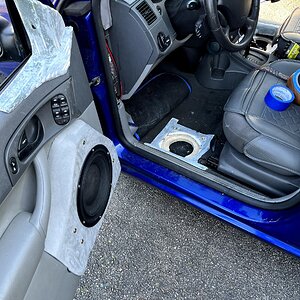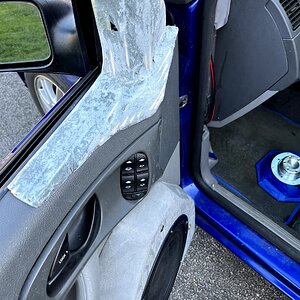I installed a remanufactured alternator and it shorted out within 15 minutes.
I've never seen a alternator internally short before and I've replaced at least 20 or 30 over the years so i'm kind of puzzled. To me it seems that the Alternator was poorly built,,, looking for opinions.
Things i did wrong
1. The bigger pivot bolt was not tightened down all the way. The threads got boogered and the bolt bottomed before it made a good snug contact, so that ground point could have been better. (but the other smaller 1/4" bolt had good contact, so not sure about the ground being an issue)
2. The other thing is the battery was very week, like 9.5 volts week and i did not let it charge before test driving it. About 5 minutes into the test drive I cranked the stereo up and probably was straining the alternator a good bit.
When i first started my son's 2001 honda van with the new alt the voltage was jumping 14.5-14.1 . The old one ever jumped around like that but then again the battery was week so i ignored that. I'm thinking that was kind of a red flag about the new alternator.
The other thing that was strange during the test drive when alt failed, the van completely died 100% instantly due to the short. Shouldn't the main 120 amp fuse have blown first? i put a DMM on the battery and discovered the direct short. i guess the battery was too weak to blow the fuse, the wires weren't hot ether, very strange.
Just thinking out loud weather this was my fault or a bad alternator.
I've never seen a alternator internally short before and I've replaced at least 20 or 30 over the years so i'm kind of puzzled. To me it seems that the Alternator was poorly built,,, looking for opinions.
Things i did wrong
1. The bigger pivot bolt was not tightened down all the way. The threads got boogered and the bolt bottomed before it made a good snug contact, so that ground point could have been better. (but the other smaller 1/4" bolt had good contact, so not sure about the ground being an issue)
2. The other thing is the battery was very week, like 9.5 volts week and i did not let it charge before test driving it. About 5 minutes into the test drive I cranked the stereo up and probably was straining the alternator a good bit.
When i first started my son's 2001 honda van with the new alt the voltage was jumping 14.5-14.1 . The old one ever jumped around like that but then again the battery was week so i ignored that. I'm thinking that was kind of a red flag about the new alternator.
The other thing that was strange during the test drive when alt failed, the van completely died 100% instantly due to the short. Shouldn't the main 120 amp fuse have blown first? i put a DMM on the battery and discovered the direct short. i guess the battery was too weak to blow the fuse, the wires weren't hot ether, very strange.
Just thinking out loud weather this was my fault or a bad alternator.
Last edited by a moderator:


